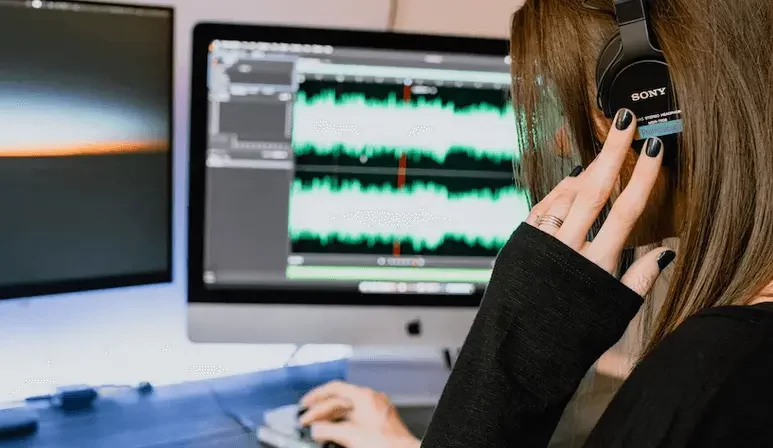
Creating a song from scratch has never been easier, thanks to the plethora of AI music generation tools that are now available. You’ve likely seen these AI songs on YouTube and other social media, the likes of AI Drake, AI Rihanna, etc. Many of these AI covers were created using a tool like Voicify. These are great for AI-generated vocals, however, they’re not able to create a song in its entirety, along with instrumentals, vocals, accompaniments, etc.
In this guide, we’ll go over how to make an entire song using just AI and your imagination, we’ll also discuss which tools can be used to do it!
Making a Song With AI
To get started, you should try to have a general idea of the style of music you want to create. Do you want something upbeat like pop and electro? Or perhaps you’re after something more serene and relaxing such as piano or jazz. Once you’ve decided on a genre and style, the next step is to choose an AI music generator tool.
There are several options available when it comes to AI music generators. We’ll list a few of our favorites along with steps on how to use them.
SongR
SongR is hands-down one of the easiest and most reliable ways to create music using AI so far. This tool even lets you generate AI lyrics to go with your track. Currently, there are 4 different genres and styles available, but more are expected to be added soon!
- Step 1. Visit the SongR app page and choose a genre. Currently, there are the following genres available: Pop, HipHop, Cafe, and Piano Rock.
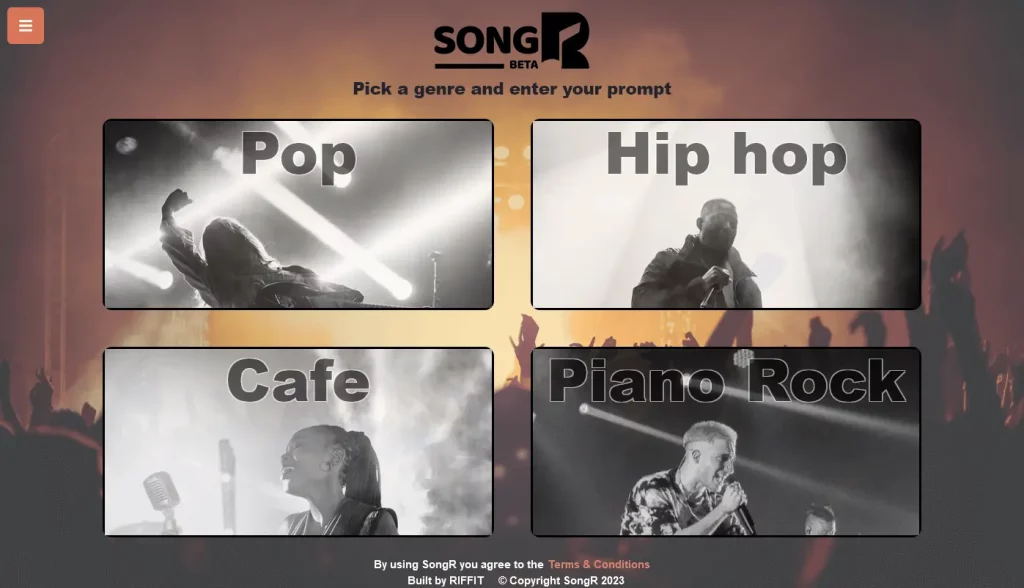
- Step 2. Once you’ve chosen a genre, type in the keywords for your song. For example, if you’re looking for an up-beat piano song, you might enter in “funky piano”. It’s best to not be too specific here, as using too many words can end up with a rather messy track. The keywords you use will be used for both the lyrics and the music genre.
- Step 3. If you have your own lyrics, you can select the red button that says “I have my own lyrics“. This lets you write or copy & paste your own lyrics that will be sung by an AI singer.
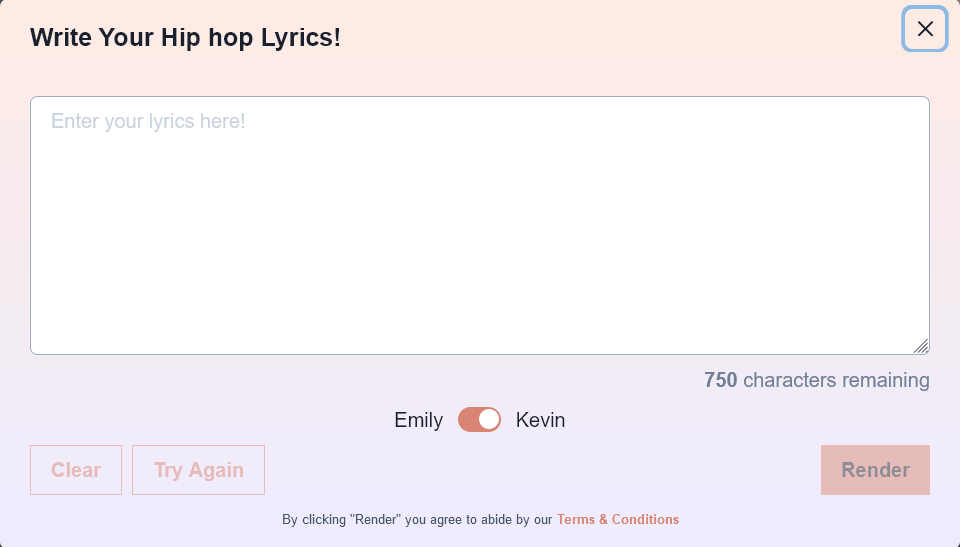
- Step 4. Select your AI singer. Choose a male or female singer to perform your song, there are currently only 2 singers (named Emily and Kevin), but more will likely be added in future.
- Step 5. You can edit your lyrics if you like. Once you’re happy with the lyrics, click on “Render“. The AI will start to generate your music track – this usually takes around 30 seconds.
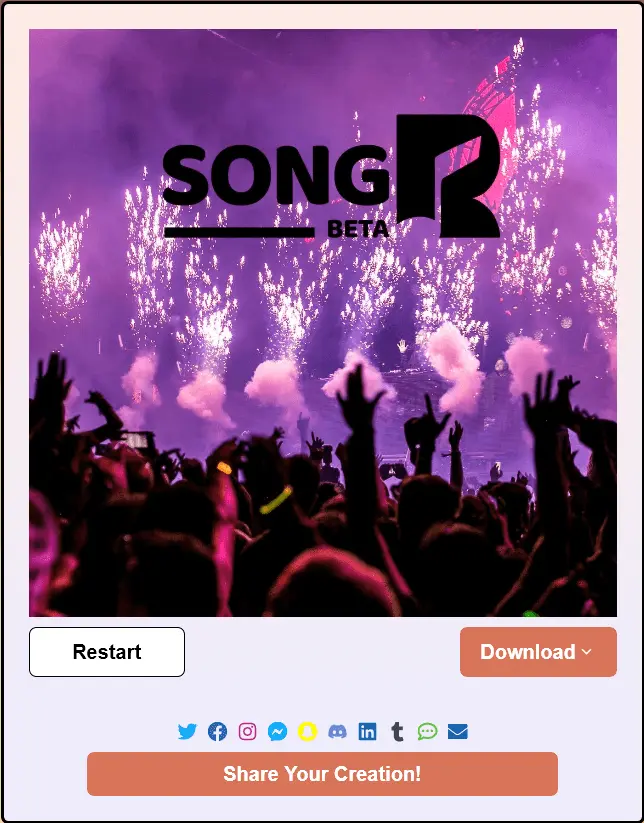
The great thing with SongR is that you can begin listening to your track before it’s fully finished. As soon as the first 30 seconds has been generated, you can start listening and the AI will continue generating in real-time!
You can make some really nice music with SongR, the only limitation is the lack of diverse genres, but we expect this to improve over time. Once your song is fully rendered, you can download it as audio or video or share it with your friends!
MusicGen
MusicGen is a more open-source approach to AI music generation. While you can access the demo version on HuggingFace, the tracks will be limited to 30 seconds. If you want to try the demo version, you can do so by visiting the HuggingFace space here: (https://huggingface.co/spaces/facebook/MusicGen). From there, you can simply type in some keywords for your music into the box on the left-hand side which says “Describe your music”. You can also upload audio to condition the AI, for example, you might want to upload an instrumental that you created to try and continue it.
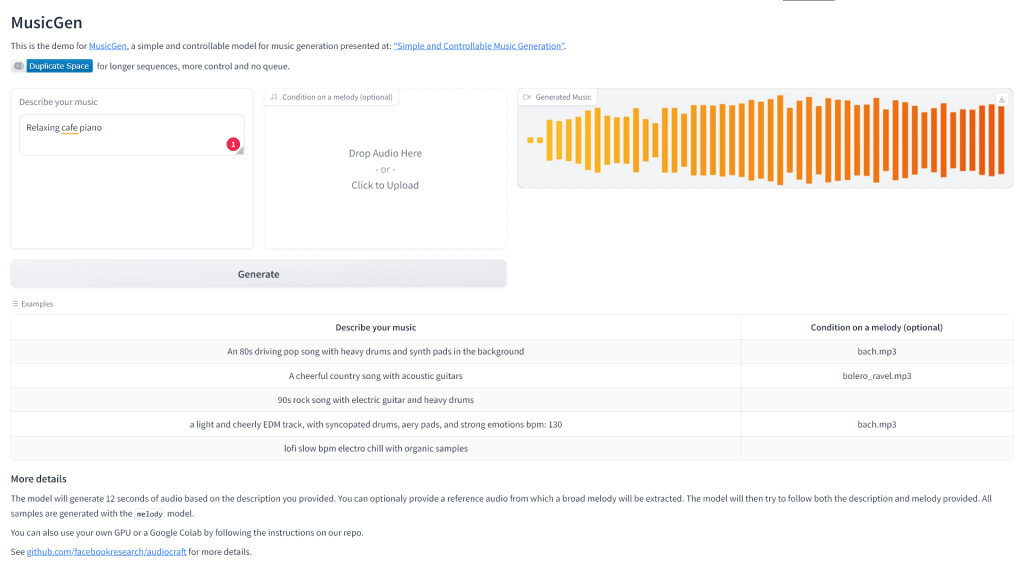
In order to fully take advantage of MusicGen, you’ll need to install it locally on your device. This can be a bit intimating if you’ve never installed an AI tool like this before, but we’ll give you a few simple steps to help you get started.
- Step 1. Before installing MusicGen, ensure that your system meets the following requirements:
Python 3.9
PyTorch 2.0.0 or later
GPU with at least 16 GB of memory (for the medium-sized model)
- Step 2. Install PyTorch using CMD or your command line interface. Make sure you have the latest version of Python installed and then run:
pip install torch>=2.0 - Step 2. Once PyTorch has finished installing, install the latest release of MusicGen by running the following command:
pip install -U audiocraft - Step 3. Install FFmpeg with the following command:
apt-get install ffmpeg - Step 4. Now you have MusicGen installed, you can open the interface by running:
python app.py
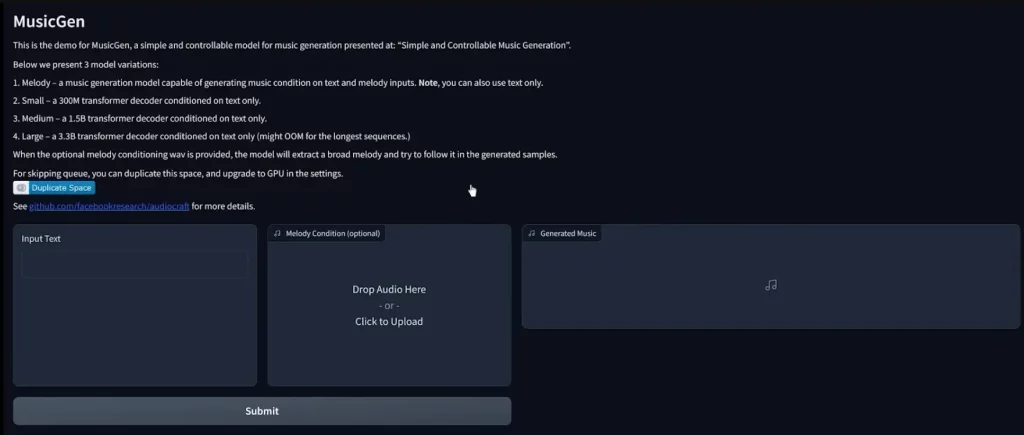
- Step 5. On the MusicGen interface, you can input your keywords into the “Input text” field – here’s where you should include things like the songs genre and style. You can also drag-and-drop audio into the “Melody condition” tab – this will give the AI a bit more to work with and let it attempt to continue with the same melody or style.
- Step 6. Click on “Submit” and wait for the AI to generate your music! Once it’s done, you can listen to it or download it. Please note that it might take a minute or two depending on how powerful your PC is.
Between MusicGen and SongR, we’d recommend starting with SongR to get an idea of how good the AI is at creating songs. MusicGen is more technical and requires much more setup than SongR, so we’d recommend it only for those looking for more in-depth AI music generation. Both are brilliant tools and relatively new, so we expect to see them get even better with time!

Can AI compose music better than humans?
AI can compose music, but it’s important to understand that it lacks the emotional depth and subjective interpretation that humans bring to music. AI-generated compositions can be impressive, but they often lack the human touch and artistic guidance that make music truly exceptional. We encourage music producers to use AI audio tools to help with their production techniques, incorporating the best of both worlds!
Do I need technical knowledge to use AI music tools?
While some technical knowledge can be beneficial, many AI music tools are designed to be user-friendly and accessible to musicians and creators with varying levels of technical expertise. Certain tools, such as SongR, really do not require any music expertise to use and enjoy. The focus is on providing intuitive and easy to access tools that can be enjoyed by everyone.
Can AI help with songwriting?
Yes, AI can be a valuable tool for songwriters! It can generate melodies, harmonies, and even lyrics based on the input you give it. AI-assisted songwriting can spark new ideas, enhance the creative process, and offer fresh perspectives to songwriters. Many musicians have had great results when letting the AI finish off their melodies, as long as you provide an initial track then the AI shouldn’t over-improvise.
Are there any legal considerations when using AI-generated music?
It’s important to consider copyright and legal implications when using AI-generated music. Ensure that you have the necessary rights to use the training data and any AI-generated content. You should also familiarize yourself with the terms and conditions of the AI music tool you choose to avoid any legal complications. Many tools will give you full commercial-use to the music you generate, but it’s still important to check beforehand.
We hope this page has been helpful in providing you with all you need to know when it comes to creating music with AI! Now you know how to use two of the best AI music generators, what type of song will you be creating first?


